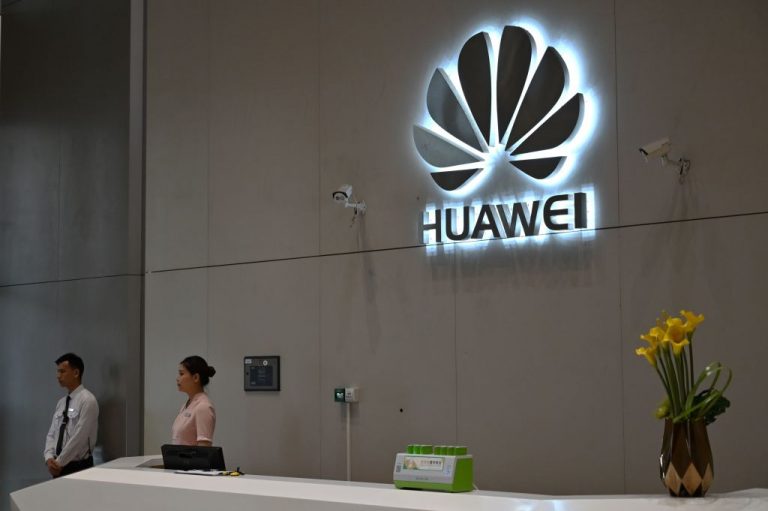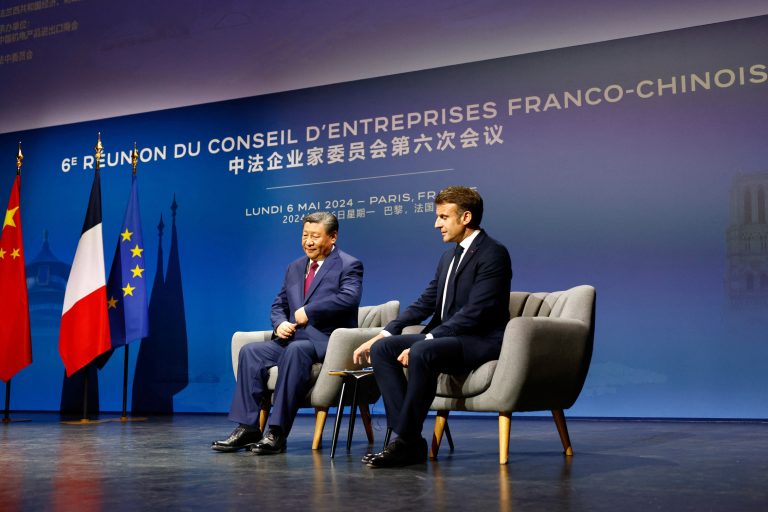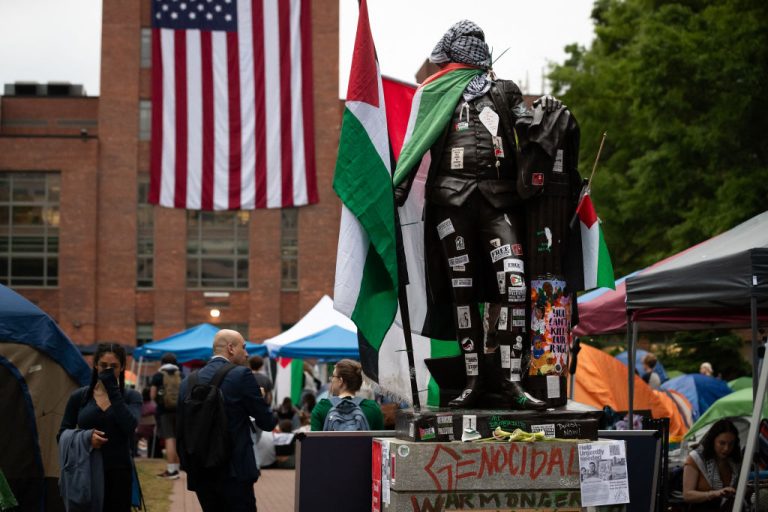The Canadian government has partnered with Communist China’s top telecom equipment manufacturer, Huawei, to sponsor electrical and computer engineering research at Canadian universities, according to a report by Globe and Mail published Monday, Feb. 14.
Canada’s National Sciences and Engineering Research Council of Canada (NSERC) is providing $4.8 million to what the Globe describes as “research partnerships that include Huawei.” While Huawei Canada declined to reveal their investment, they did say their stake was “greater than $4.8-million.”
At a first glance, Huawei’s self claim and global ranking as a big R&D spender might give it some credence when it comes to its success as a telecommunications company – that it is earned rather than unfairly acquired through deceptive, unethical practices and CCP support.
Duanjie Chen, Munk Senior Fellow, MacDonald Laurier Institute
The Globe says the funding will be for advanced research in the fields of “chip-to-chip communications over heterogeneous fabrics, intelligence computing memory systems, brain-inspired photonic computing and privacy-preserver graphic analytics.”
Success
You are now signed up for our newsletter
Success
Check your email to complete sign up
The timing of the grant has its irony. Last month, Prime Minister Justin Trudeau issued a letter to Francois-Philippe Champagne, recently reshuffled from Minister of Foreign Affairs to Minister of Innovation, Science, and Technology, directing Champagne to “in close collaboration with Canadian industry and postsecondary institutions, to safeguard Canada’s world-leading research ecosystem, as well as our intellectual property (IP) intensive business.”
Trusting a wolf with the henhouse
The People’s Republic of China (PRC) leads the world in intellectual property theft. The issue became a core policy issue in the toughening U.S. stance on China that began in 2018 under the Trump administration.
In a March 2020 research paper by Duanjie Chen, a Munk Senior Fellow at Canadian think tank MacDonald Laurier Institute entitled Huawei Risk is a China Risk: Why Canada Needs to Ban Huawei’s Involvement In 5G, Chen said “Huawei’s inseparable relationship with the Chinese Communist Party (CCP), its inexplicably rapid growth, and its global track record of predatory behaviour, including repeated allegations of systematic intellectual property theft, tell a different story. Dealing with Huawei is dealing with the Chinese state behind it.”
In the paper, Chen finds Huawei’s annual operating expense ratio is approximately 29 percent, about the same as rivals such as Ericsson and Nokia. However, for Huawei “that operating expense includes mainly R&D spending, non-R&D operations, expenses on marketing, rent, and equipment, and inventory cost,” and that “R&D spending includes not only payroll to R&D personnel but also the cost of using foreign intellectual properties”
Chen continues, “At a first glance, Huawei’s self claim and global ranking as a big R&D spender might give it some credence when it comes to its success as a telecommunications company – that it is earned rather than unfairly acquired through deceptive, unethical practices and CCP support.”
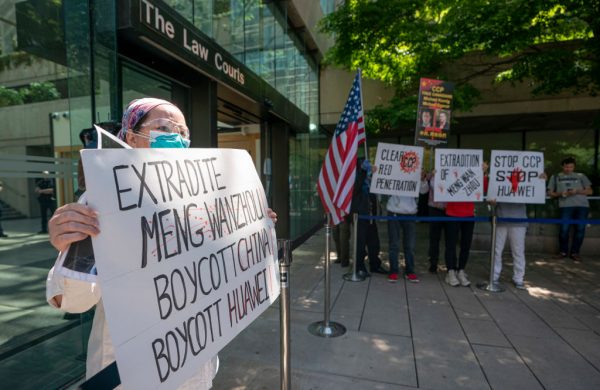
Notably, Huawei owns a “significant hoard of intellectual property patents, with Huawei being ‘the number one contributor to 5G standards, and…[holding] the second-most standards-essential patents (SEPs) in that category’ (Malkin and Hinton 2019).”
In a statement to the Globe, the University of Toronto effectively said dealing with Huawei was no concern so long as the federal government wasn’t intervening, ‘We look to the federal government for actionable direction and guidance. There has been no change in the actions of the government with respect to Huawei Canada and its operations in this country.’
However, Chen says in her paper that the red lights are flashing on Huawei’s position because Huawei’s R&D spending to gross-profit ratio has “been always the lowest compared to its major rivals – Ericsson and Nokia” while its absolute spending is also the lowest.
“In 2009, Huawei only spent US$2 billion and had a ratio of 23 percent compared to Ericsson’s US$4.3 billion (with a 47 percent ratio) and Nokia’s US$8.2 billion (with a 45 percent ratio).” This calls into question whether Huawei was really able to outwit and outsmart industry-leading innovation giants like Ericsson and Nokia, or if they obtained their cache of intellectual property through other means more typical of the CCP’s modus operandi.
However, Champagne claims there is nothing to be concerned about for Canada on the intellectual property front with Huawei because “our government created a working group with universities and our national-security agencies to develop resources and tools to help Canadian researchers safeguard their work and identify potential risks.”
In June, it was revealed that Champagne owed the Bank of China $1.2 million in mortgages for two properties he purchased in London before he took office and was working in the United Kingdom. Champagne could not obtain funding from anyone else. Champagne disclosed his debts to the CCP’s bank to the Office of the Ethics Commissioner as required, but maintained the debt while he held office. Champagne repaid the loans to the Bank of China only after the matter became public.
Champagne also gave an interview with Beijing’s state-run China Global Television Network where he praised the Party as “as [a] beacon of stability, predictability, a rule-based system, a very inclusive society” in 2017 when he was then-Minister of International Trade, according to a 2017 article in the Globe.
Dependence on Huawei to fund research, projects
According to the Globe, one of the projects Canada is funding with Huawei is a $1.4 million grant for “photonic computing for efficient next-generation telecommunications networks” at the University of Quebec’s National Institute of Scientific Research (INRS). Professor Roberto Morandotti is the researcher.
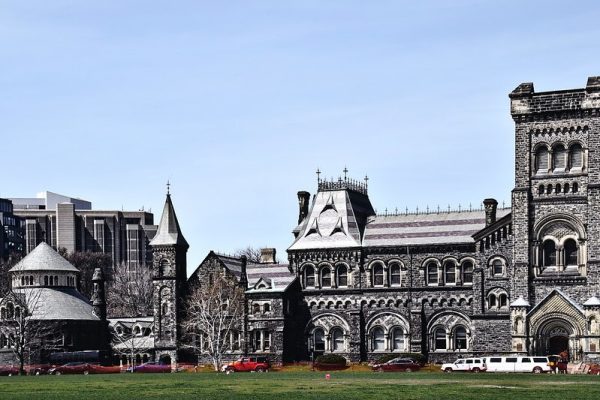
Morandotti said “there is nobody else” besides Cisco and Huawei who are able to make the necessary research contributions in Canada, “Every grant we [get], we need to have industry support,” and that they have to either do business with Huawei or not do research, “Either you get a company that supports you … or you don’t do any projects, and then you don’t develop any intellectual property and you don’t pay any student and you don’t support the Canadian economy.”
Morandotti commended Huawei for their contributions to his work, saying the CCP telecom giant “gave us a lot of information to solve the problems that we have in our research.”
While Canadian citizens live under lockdown measures, Meng ‘spent Christmas Day at a restaurant that catered exclusively to her party of 14’ and often ‘goes on shopping sprees at high-end Vancouver boutiques that set aside space so that she can browse in private.’
Professor Morandotti’s profile at the INRS shows a number of papers published between himself and ethnic Chinese researchers working in Australia, such as Xingyuan Xu, who works at the Swinburne University of Technology in Australia and was educated at the University of Electronic Science and Technology of China in Chengdu in 2014 and Beijing University of Posts and Telecommunications in 2017.
In a statement to the Globe, the University of Toronto effectively said dealing with Huawei was no concern so long as the federal government wasn’t intervening, “We look to the federal government for actionable direction and guidance. There has been no change in the actions of the government with respect to Huawei Canada and its operations in this country.”
Meng Wanzhou and the Two Michaels
Huawei’s Chief Financial Officer Meng Wanzhou remains under house arrest in Vancouver. She was arrested by Canada’s federal law enforcement, the Royal Canadian Mounted Police (RCMP), on Dec. 1, 2018, when she landed in Vancouver, as a result of a U.S. extradition warrant ordered by the Trump Administration for alleged fraud and conspiracy to commit fraud to circumvent U.S. sanctions on Iran.
Meng is under house arrest as Huawei lawyers attempt to challenge the extradition in a Canadian court in what has become a lengthy battle.
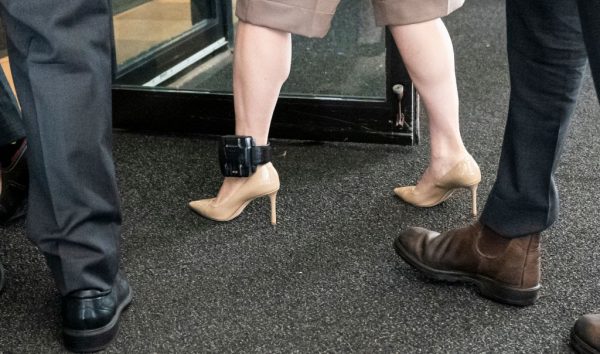
The Chinese Communist Party (CCP) retaliated against Canada for the extradition by arresting two Canadian citizens in China on Dec. 10, 2018, Michael Kovrig and Michael Spavor. This hostage diplomacy, popularly known in Canada as the “Two Michaels,” has drawn widespread, universal condemnation and calls from the Canadian public demanding Trudeau finally take a tough stance towards the CCP.
According to a June 2020 article by the Globe, Kovrig and Spavor were interrogated for “six to eight hours a day” when they were originally detained. The pair have since been held in a Chinese prison where the lights are on 24/7 and denied access to the Canadian Consulate.
Meng Wanzhou, by comparison, has been living a life of luxury while under house arrest in Vancouver, according to a January report by Bloomberg.
While Canadian citizens live under lockdown measures, Meng “spent Christmas Day at a restaurant that catered exclusively to her party of 14” and often “goes on shopping sprees at high-end Vancouver boutiques that set aside space so that she can browse in private.”
Under the Province of British Columbia’s Provincial Health Order (PHO), “all gatherings and events are suspended to significantly reduce COVID-19 transmission related to social interactions. The order came into effect November 19, 2020 at midnight and will be kept in place until further notice based on direction from the PHO.”
While pubs and restaurants are allowed to remain open in BC, the PHO states, “In order to limit the spread of COVID-19, people should only be visiting restaurants with their household. For people who live alone, this should be with a maximum of two people they regularly interact with (core bubble).”
Despite this, the Liberals have kept cozy ties with the CCP. In December, independent media outlet Rebel News was granted, under an Access for Information request, emails, and documents from Global Affairs Canada showing the Department of National Defense was required to train People’s Liberation Army ranking officers on winter survival training as a result of the Liberal Party’s pressure.
The emails also showed a friendly internal narrative among Canadian government officials when it came to China. When it came to Meng Wanzhou, they referred to her explicitly as “Ms. Meng,” while the Two Michaels were never referred to by name and only referred to as the “consular cases.”
Canada is the only country in the Five Eyes intelligence alliance — the others being the UK U.S., Australia, and New Zealand — that has failed to either restrict or ban Huawei from its 5G rollout.
Follow us on Twitter or subscribe to our email list



